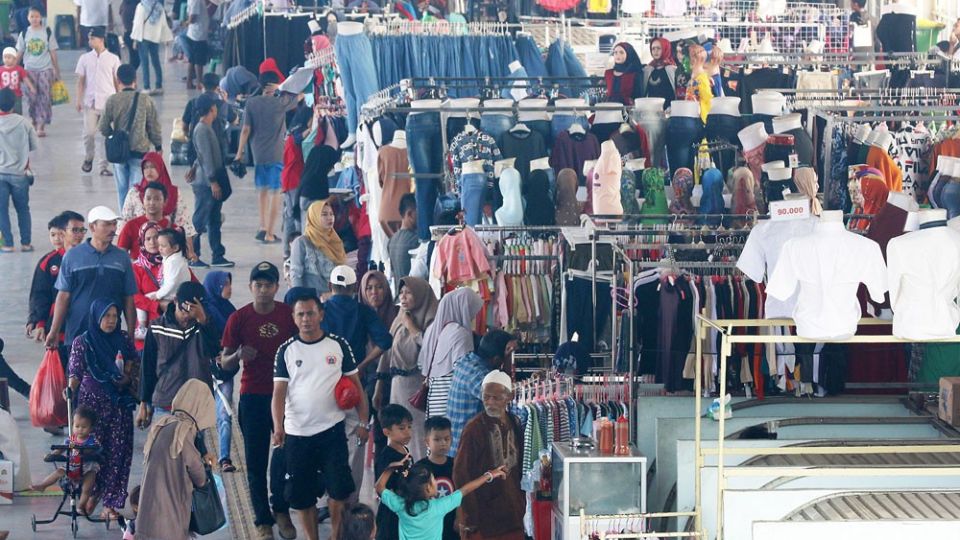June 3, 2025
JAKARTA – Inflation slowed in May as prices of key food items declined, easing pressure on consumers amid persistent weak sentiment.
Consumer price index (CPI) growth fell 0.37 percent month-to-month (mtm) in May, marking the deepest monthly deflation since September 2022, according to Statistics Indonesia (BPS) data published on Monday.
It was also the third monthly deflation recorded in 2025, following declines in January and February.
“The food, beverage and tobacco group contributed the most to May 2025’s deflation,” Pudji Ismartini, undersecretary of distribution and services at BPS, briefed the press on the same day of the data release.
Read also: Coffee, gold push up inflation to 1.95 percent in April
The drop was driven largely by horticultural products such as red chilli peppers, cayenne pepper and shallots, with broader declines also seen in chicken, garlic and fresh fish, she added.
Tomatoes, however, continued an upward price trend, adding slight inflationary pressure.
Pudji noted that the seasonal decline in food prices had been consistent in the same period in the past four years, following the Ramadan-Idul Fitri festivities.
The latest figure also reflected easing price pressures as post-celebratory demand tapered off and international crude oil prices continued to fall, which translates to cheaper retail fuel.
On an annual basis, headline inflation eased to 1.6 percent year-on-year (yoy), declining from 1.95 percent in April and well below the 2.84 percent seen in May 2024.
That figure still falls within Bank Indonesia’s inflation target of between 1.5 percent and 3.5 percent for this year.
Volatile food prices fell 2.48 percent mtm and 1.17 percent yoy, due to seasonal pullback in food prices has been consistent in same period in the past four years.
Meanwhile administered price inflation came in at 1.3 percent yoy and but fell 0.02 percent mom, driven by lower tap water fare in 12 regions and a modest decline in cigarette prices, BPS data show.
Core inflation, which strips out administered and volatile prices, rose by 2.4 percent yoy, driven mainly by higher prices in gold jewelry, coffee and cooking oil.
“This reflects moderate but stable domestic demand, especially in education, health, and ready-to-eat food and beverages,” private lender Bank Permata chief economist Josua Pardede told The Jakarta Post on Monday.
Gold jewelry was the top monthly inflation driver, according to BPS, while personal care and other services added 0.5 percentage points to annual inflation, marking the first notable contribution from the sector since August 2020.
While headline inflation is low, this showed that price pressures in certain groups remained high and could fuel inflation perceptions among the public, Josua added.
Read also: RI consumers trading down as economic strain persists
Samuel Sekuritas Indonesia (SSI) said in a statement on Monday that the soft inflation reading would enable Bank Indonesia to continue its accommodative policy stance.
With inflation sits well within the central bank target, it could open room for further monetary easing to support economy recovery, though it will likely remain cautious amid risks from global uncertainties.
According to a separate report released by BPS also on Monday, tourist arrivals to Indonesia rose to 18.26 percent mom in April and were up 9.15 percent yoy, driven by a cast increase in the number of visitors from China, marking a 23 percent increase yoy.


